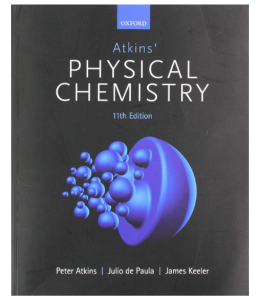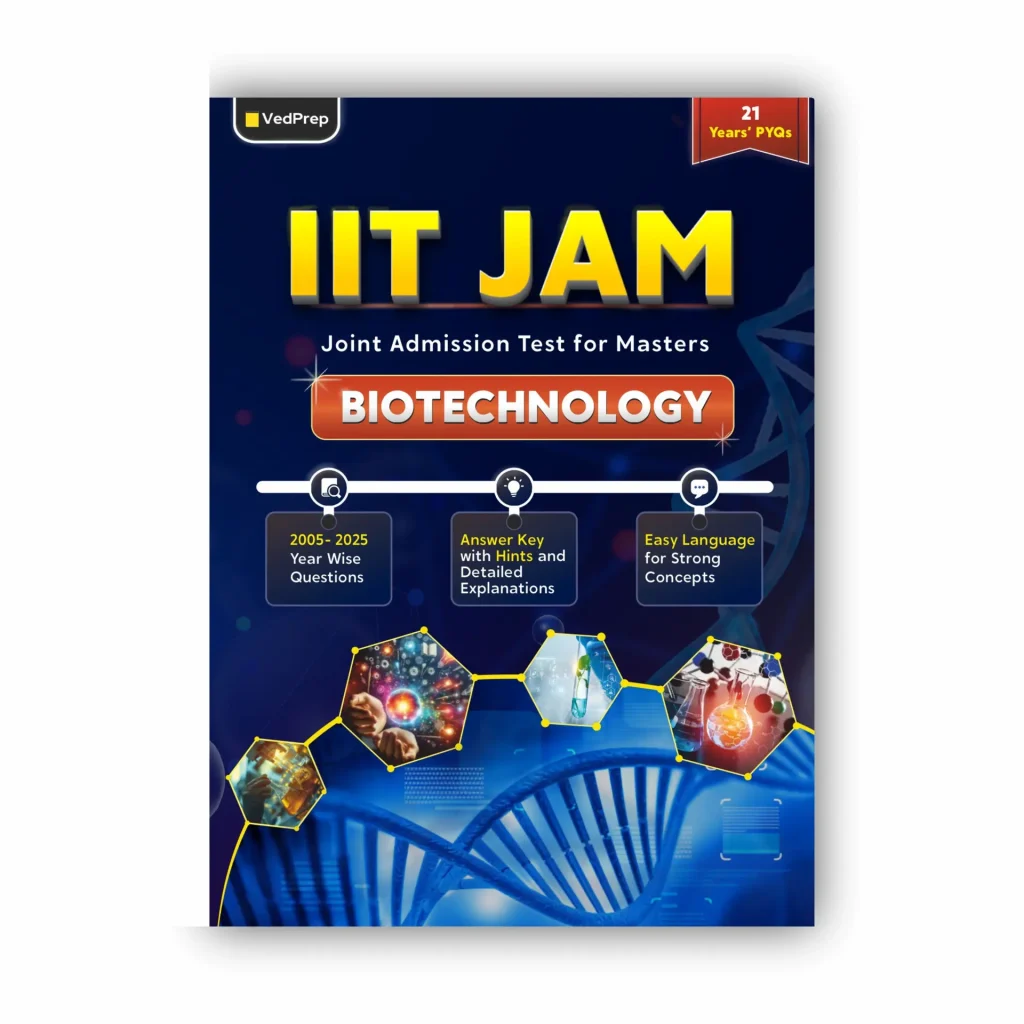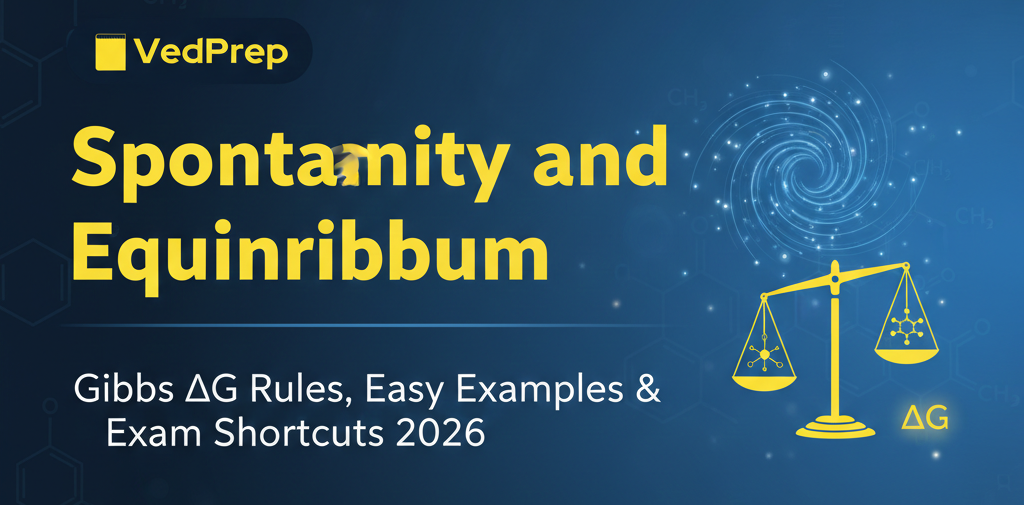Important Topics for CSIR NET Chemistry for 2025 Exam are the foundation of your success in one of India’s toughest science exams. Every year, the CSIR NET Chemistry paper tests your depth of understanding across Inorganic, Organic, and Physical Chemistry but nearly 80% of the questions come from a few high-weight and repeatedly asked topics. Knowing these important topics for CSIR NET Chemical Science helps aspirants focus their preparation smartly, save time, and score higher in both Parts B and C of the exam.
What is CSIR NET in Chemical Science?
CSIR NET (Council of Scientific & Industrial Research – National Eligibility Test), also known as the CSIR UGC NET, is the same exam there is no difference between them.
It is conducted for two primary purposes:
- Junior Research Fellowship (JRF) – for PhD or research work
- Lectureship (LS) for teaching at colleges or universities
Subjects covered include Life Sciences, Physical Sciences, Chemical Sciences, Mathematical Sciences, and Earth Sciences. For chemical science aspirants, mastering the important topics for CSIR NET Chemistry is key.
You can also watch this – How to Crack CSIR NET Dec 2025 Life Sciences in 1st Attempt | Beginner to Topper Full Strategy
What is CSIR NET Exam?
CSIR NET (Council of Scientific and Industrial Research – National Eligibility Test) is a prestigious exam held to select candidates .CSIR NET also known as CSIR-UGC NET. CSIR NET and CSIR-UGC NET are the same exam, there is no difference between them. CSIR NET previous year question
- Junior Research Fellowship (JRF) – for research or Ph.D.
- Lectureship (LS) – for teaching at college or university level.
- Conducting Authority: National Testing Agency (NTA)
- Mode: Computer-Based Test (CBT)
- Frequency: Twice a year (June and December)
- Subjects: Life Sciences, Physical Sciences, Chemical Sciences, Mathematical Sciences, Earth Sciences
- CSIR JUNE 2025 : FINAL ANSWER KEY Download
Important Topics for CSIR NET Chemistry Matters
- These important topics for CSIR NET Chemistry form the bulk of questions in Part B and Part C of the exam.
- Prioritising high-weightage areas lets you save time and focus on concepts that guarantee marks.
- Many tough analytical questions in Part C come from recurring important topics—like quantum chemistry, stereochemistry, reaction mechanisms.
- Recognising overlap among units (e.g., physical chemistry + quantum + spectroscopy) allows a smarter preparation strategy.
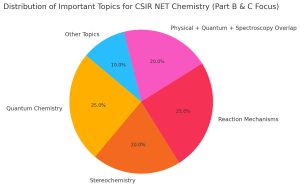
Important Topics for CSIR NET Chemical Science Syllabus Overview
CSIR NET Chemical Science syllabus is structured to assess both conceptual understanding and problem-solving skills across multiple branches of Chemistry.
It is broadly divided into four major parts each testing analytical thinking, practical application, and theoretical depth.Also Check CSIR NET Notes
| Section | Coverage / Description | Focus in Exam |
| Part A | General Aptitude (Common for all subjects) | Tests logical reasoning, numerical ability, and data interpretation skills. Carries 30 marks in total. |
| Part B | Subject-specific conceptual questions | Covers core areas from Inorganic, Organic, and Physical Chemistry. Emphasis on fundamental theories and definitions. |
| Part C | Application and analytical-based questions | Focuses on problem-solving, numerical calculations, and research-oriented questions based on advanced chemical principles. |
| Interdisciplinary Topics | Emerging chemical areas | Includes Green Chemistry, Environmental Chemistry, Nanochemistry, and other cross-disciplinary topics relevant to modern research. |
Important Topics for CSIR NET Chemical Science Suggested Weightage Study Time Allocation
Though the official syllabus doesn’t assign exact percentages, based on PYQ analysis and expert inputs we suggest the following visual breakdown of where you should allocate study time for the important topics for CSIR NET Chemical Science.CSIR NET previous year question
| Chemistry Section | Recommended Study Time (%) | Remarks / Focus Areas |
| Physical Chemistry | 30% | Focus on Quantum Chemistry, Thermodynamics, Kinetics, and Spectroscopy. Analytical and numerical problems dominate Part C. |
| Inorganic Chemistry | 25% | Emphasize Coordination Compounds, Organometallics, and Bioinorganic Chemistry. Understand periodicity and bonding theories deeply. |
| Organic Chemistry | 30% | Priority on Reaction Mechanisms, Stereochemistry, Named Reactions, and Spectroscopy. Learn reagent-based transformations. |
| Interdisciplinary / Analytical Chemistry | 10% | Includes Environmental, Polymer, and Green Chemistry. Focus on modern techniques and recent advancements. |
| General / Applied Chemistry | 5% | Covers conceptual basics, IUPAC nomenclature, and common theoretical frameworks that connect multiple units. |
Important Topics for CSIR NET Chemical Science Unit-Wise Important Topics
Here are the core units and key topics you must cover thoroughly. These are the important topics for CSIR NET Chemistry that show up consistently.
1. Inorganic Chemistry
- Chemical periodicity; structure & bonding in homo/heteronuclear molecules (VSEPR)
- Transition elements & coordination compounds: bonding theories, spectral & magnetic properties.
- Inner transition elements: redox chemistry, analytical applications.
- Organometallic compounds: synthesis, bonding, catalysis.
- Bioinorganic chemistry: metalloproteins, nitrogen fixation.
- Analytical methods: IR, Raman, NMR, MS, Mössbauer.
2. Physical Chemistry
- Quantum chemistry basics: operator algebra, particle-in-a-box, harmonic oscillator, hydrogen atom
- Approximate methods: perturbation theory, variational principle.
- Chemical kinetics & dynamics: mechanism, rate laws.
- Thermodynamics & statistical mechanics.
- Solid state: Bragg’s law, band theory, crystal structure.
- Colloids, surfaces, electrochemistry.
- Data analysis: error, deviation, standard deviation.
Also Check CSIR NET Notes
3. Organic Chemistry
- Reaction mechanisms: SN1, SN2, E1, E2, pericyclic, photochemical.
- Stereochemistry: chirality, enantiomers, diastereomers, asymmetric synthesis.
- Named reactions & rearrangements.
- Spectroscopy: IR, UV-Vis, NMR, Mass Spectrometry.
- Synthetic strategies: disconnection, protecting groups, retrosynthesis.
- Natural products, heterocycles.
4. Interdisciplinary Topics for CSIR NET Chemical Science
- Green Chemistry & Catalysis.
- Nanoscience & Technology in chemistry.
- Medicinal Chemistry.
- Supramolecular Chemistry.
- Environmental Chemistry.
5. Biochemistry – Important Topics for CSIR NET
Although primarily a life-science area, biochemistry can overlap in chemical science. For the keyword “biochemistry important topics for CSIR NET”:
- Enzyme kinetics & mechanism
- Metabolism of carbohydrates, lipids, proteins, nucleic acids
- Bioinorganic elements & cofactors
- Molecular biology basics & biochemical techniques
Also read – Jobs After Qualifying CSIR NET, Post and Salary
CSIR NET Exam Chemical Science Books
The CSIR NET Chemical Science books listed below include the most popular and highly recommended resources for all three branches Inorganic, Organic, and Physical Chemistry. These books are aligned with the latest NTA-CSIR NET syllabus for 2025.
| Book Title | Author / Publication | Key Features |
| Inorganic Chemistry | D.F. Shriver, P.W. Atkins & C.H. Langford | A complete guide to inorganic chemistry concepts, covering bonding, coordination compounds, and structure systematically. Excellent for conceptual clarity and NET-level questions. |
| Fundamentals of Molecular Spectroscopy | C.N. Banwell | Explains spectroscopy principles clearly with problem sets and model papers. Ideal for mastering molecular structure and optical methods. |
| Principles of Physical Chemistry | Peter Atkins | Concise explanations of core physical chemistry principles. Includes numerous solved examples for thermodynamics, kinetics, and quantum topics. |
| Stereochemistry of Organic Compounds | Ernest L. Eliel | An in-depth and problem-focused text on stereochemistry, covering conformations, chirality, and stereochemical principles. |
| Organic Chemistry | Jonathan Clayden, Nick Greeves & Stuart Warren | Comprehensive yet accessible presentation of reaction mechanisms and organic synthesis. Designed for deep conceptual understanding. |
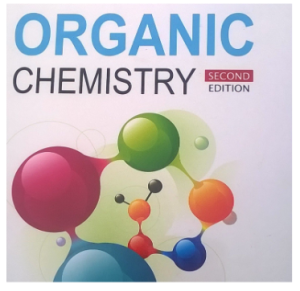
Important Topics for CSIR NET Chemical Science Revision Strategy
A well-planned and consistent revision schedule is crucial for mastering the important topics for CSIR NET Chemical Science. Instead of revisiting the entire syllabus randomly, focus on structured topic-wise revisions that reinforce conceptual clarity, improve recall speed, and strengthen your problem-solving ability before the exam.CSIR NET previous year question
- Create one-page formula/concept sheets per topic.
- Use mind maps and flowcharts for mechanisms & reactions.
- Solve last 10 years’ PYQs and mark frequently asked topics.
- Revise high-weight topics twice before exam (e.g., quantum/thermo vs stereochemistry).
- Take full-length mock tests, assess weak areas and revise accordingly.
Important topics for CSIR NET Chemistry are not just chapters to study but the real backbone of your success strategy. To crack the exam successfully, don’t aim to just cover the syllabus, aim to master these topics deeply. With focused practice, the right reference books, a structured revision plan, and consistent mock test attempts, you can build both confidence and accuracy. Smart preparation around these important topics for CSIR NET Chemistry ensures that every hour of study brings you closer to your JRF or Lectureship goal.
You can also watch this –
CSIR NET June 2025 Life Sciences Answer Key & Full Paper Solutions | Fastest & Most Accurate
Important Topics for CSIR NET Chemical Science 120-Day Study Plan
This 120-day strategy for CSIR NET Chemical Science, designed through PYQ analysis and expert-tested methods, ensures complete syllabus coverage with equal focus on concept clarity, numerical practice, and revision guiding aspirants from foundation to final mock test readiness.Based on PYQ trend analysis and expert-tested study methods
Phase 1: Concept Building (Days 1–40)
Goal: Strengthen theoretical foundation across all three main branches.
Study Duration: 6–7 hours/day
| Days | Subjects & Topics | Focus |
| Day 1–10 | Physical Chemistry – Core Fundamentals | Thermodynamics, Laws, Gibbs free energy, Enthalpy, Chemical Equilibrium, Phase Rule |
| Day 11–20 | Quantum & Spectroscopy | Schrödinger Equation, Operators, Eigenvalues, Particle in a Box, IR, UV-Vis, Raman spectroscopy |
| Day 21–30 | Inorganic Chemistry – Foundations | Periodicity, Chemical Bonding (VBT, MOT, Crystal Field Theory), Acid-Base Theories |
| Day 31–40 | Organic Chemistry – Basics | Reaction Mechanisms (SN1, SN2, E1, E2), Reactive Intermediates, Aromaticity, Stereochemistry |
Weekly Targets:
- 3 hours Concept Reading
- 2 hours PYQ Practice
- 1 hour Revision & Formula Notes
- 1 hour Mock/MCQs (Sunday)
Phase 2: Advanced Application & Integration (Days 41–80)
Goal: Strengthen problem-solving and analytical understanding for Part C.
Study Duration: 7–8 hours/day
| Days | Subjects & Topics | Focus |
| Day 41–50 | Physical Chemistry (Advanced) | Chemical Kinetics, Electrochemistry, Surface Chemistry, Adsorption Isotherms |
| Day 51–60 | Inorganic Chemistry (Intermediate) | Coordination Compounds, Ligand Field Theory, Organometallics, Catalysis |
| Day 61–70 | Organic Chemistry (Intermediate) | Name Reactions (Aldol, Cannizzaro, Perkin, Michael), Pericyclic Reactions, Reagents (LiAlH₄, PCC, OsO₄) |
| Day 71–80 | Interdisciplinary Topics | Environmental Chemistry, Polymer Chemistry, Green Chemistry, Analytical Techniques (Chromatography, TGA, DSC) |
Weekly Targets:
- Solve at least 2 previous year papers
- Create reaction summary sheets
- 1 Full-Length Mock Test every 10 days
- 1 Weekly Recap (Mind Map Revision)
Phase 3: Intensive Revision & Mock Practice (Days 81–120)
Goal: Sharpen speed, accuracy, and recall through focused revision & mocks.
Study Duration: 8–9 hours/day
You can also watch this – How to Crack CSIR NET Dec 2025 Life Sciences in 1st Attempt | Beginner to Topper Full Strategy
| Days | Subjects & Topics | Focus |
| Day 81–90 | Physical + Organic Revision | Practice numericals + reaction mechanisms |
| Day 91–100 | Inorganic + Spectroscopy Revision | Formula memorization, structural analysis, PYQ coverage |
| Day 101–110 | Full-Length Mock Practice | Attempt 1 mock every alternate day + analyze errors |
| Day 111–115 | Weak Area Rectification | Revise low-score topics based on mock feedback |
| Day 116–120 | Final Revision Phase | Revise Formula Notes + Short Concepts + Cheat Sheets |
Important Topics for CSIR NET Chemical Science Final Phase Targets Preparation
The last few weeks before the exam are crucial this is where precision, speed, and memory retention decide your final score. Your final phase targets should focus on consolidation, smart revision, and exam-condition practice rather than learning new topics.
| Target Area | Action Plan | Purpose / Outcome |
| Full Syllabus Revision | Revise each unit at least 3 times using short notes & formula sheets. | Boost recall and minimize last-minute confusion. |
| Previous Year Papers | Solve the last 10 years’ PYQs from Parts B & C. | Identify frequently repeated question types and core concepts. |
| Mock Tests | Attempt 10–12 full-length mocks under timed conditions. | Improve time management, accuracy, and confidence. |
| Error Analysis | Revisit incorrect questions from mock tests & PYQs. | Strengthen weak areas and avoid repeated mistakes. |
| Formula & Mechanism Recap | Daily quick review of key formulas, reaction mechanisms, and spectroscopy data. | Keep important details fresh for exam day. |
| Rest & Focus | Sleep 7–8 hours, maintain hydration, and practice calmness. | Enhance concentration and reduce burnout. |
Important Topics for CSIR NET Chemical Science Suggested Daily Time Allocation
CSIR NET preparation. By dedicating specific hours to each study component concept learning, numerical practice, revision, and mock tests you ensure balanced growth across all topics. This structured daily routine keeps your preparation focused, disciplined, and result-oriented.
| Activity | Duration | Purpose |
| Concept Reading | 3 hrs | Build theory clarity |
| Numerical Practice | 2 hrs | Strengthen analytical skills |
| PYQ Solving | 1 hr | Understand exam trend |
| Revision & Notes | 1 hr | Improve retention |
| Mock/MCQs | 1 hr | Test performance |
Important Topics for CSIR NET Chemical Science Expert Tips
Success in the CSIR NET Chemical Science exam is not just about studying hard it’s about studying smart. By following proven strategies from toppers and subject experts, you can strengthen your conceptual base, master problem-solving, and maintain peak performance throughout your preparation journey.
- Focus 70% time on Physical + Organic + Inorganic Chemistry.
- Make unit-wise micro notes with reaction mechanisms & formulas.
- Revise Quantum Chemistry and Coordination Compounds weekly.
- Analyze each mock test to identify weak areas.
- Practice at least 2 hours of numerical problems daily.
Click here to download CSIR NET Previous Year Question Papers PDF.
| CSIR NET Previous Year Question Papers PDF (2024) | ||
| Subjects | Exam Shift | Download Link |
| Chemical Science | Shift 1 | PDF Download |
| Shift 2 | PDF Download | |
| CSIR NET Previous Year Question Papers PDF (2023) | ||
| Subjects | Exam Shift | Download Link |
| Chemical Science | Shift 1 | PDF Download |
Also read – CSIR NET 2025: Application Form, Exam Date, Eligibility, Pattern
Important Topics for CSIR NET Chemical Science High-Weight Topics to Revise Weekly
Consistent weekly revision of high-weight topics is essential for long-term retention and exam accuracy. The important topics for CSIR NET Chemistry often repeat across sessions, so revisiting them weekly ensures you stay confident and exam-ready. Prioritize these scoring areas to maximize marks in Parts B and C.
| Branch | Top Scoring Topics |
| Physical Chemistry | Thermodynamics, Quantum Mechanics, Spectroscopy, Kinetics |
| Organic Chemistry | Stereochemistry, Named Reactions, Reagents, Mechanisms |
| Inorganic Chemistry | Coordination Compounds, Organometallics, Bioinorganic |
| Interdisciplinary | Analytical Chemistry, Green Chemistry, Supramolecular Concepts |
Important Topics for CSIR NET Chemistry for 2025 Exam FAQs
Which are the most important topics for CSIR NET Chemistry?
Organic reaction mechanisms, coordination chemistry, quantum/thermodynamics physical chemistry.
How do I prepare for CSIR NET Chemistry if I’m weak in inorganic chemistry?
Focus on core chapters like periodicity, transition metals, and organometallics; use focused revision and PYQs.
Are biochemistry topics asked in CSIR NET Chemical Science?
While CSIR Chemical Science focuses on chemistry, biochemistry overlaps arise in bioinorganic and interdisciplinary sections—cover basic enzyme kinetics and biomolecule reactions.
What is the strategy for important topics for CSIR NET Chemical Science 2025/2026?
Prioritise high-weight units (organic + physical), update on emerging interdisciplinary topics (nano, green chemistry) as per 2025/26 syllabus.
How many books should I use for CSIR NET Chemistry preparation?
2-3 core textbooks plus one exam-oriented book keeps things effective—avoid overcrowding.
How to prepare when negative marking exists in CSIR NET Chemistry?
Practice accuracy in MCQs; avoid wild guesses; revise thoroughly so you’re confident before attempting.
Which topics repeat most in CSIR NET Chemical Science?
Mechanisms in organic chemistry, coordination & transition metal chemistry, quantum chemistry physical section—check PYQs to confirm.
Can I clear CSIR NET Chemical Science without coaching?
Yes—if you follow a disciplined plan focusing on the important topics for CSIR NET Chemistry, use good books, solve PYQs, and revise smartly.







